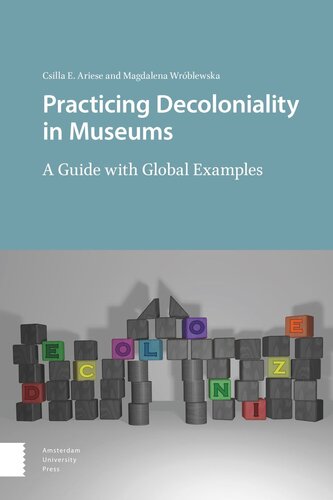

Most ebook files are in PDF format, so you can easily read them using various software such as Foxit Reader or directly on the Google Chrome browser.
Some ebook files are released by publishers in other formats such as .awz, .mobi, .epub, .fb2, etc. You may need to install specific software to read these formats on mobile/PC, such as Calibre.
Please read the tutorial at this link: https://ebookbell.com/faq
We offer FREE conversion to the popular formats you request; however, this may take some time. Therefore, right after payment, please email us, and we will try to provide the service as quickly as possible.
For some exceptional file formats or broken links (if any), please refrain from opening any disputes. Instead, email us first, and we will try to assist within a maximum of 6 hours.
EbookBell Team

5.0
68 reviewsThe cry for decolonization has echoed throughout the museum world. Although perhaps most audibly heard in the case of ethnographic museums, many different types of museums have felt the need to engage in decolonial practices. Amidst those who have argued that an institution as deeply colonial as the museum cannot truly be decolonized, museum staff and museologists have been approaching the issue from different angles to practice decoloniality in any way they can. This book collects a wide range of practices from museums whose audiences, often highly diverse, come together in sometimes contentious conversations about pasts and futures. Although there are no easy or uniform answers as to how best to deal with colonial pasts, this collection of practices functions as an accessible toolkit from which museum staff can choose in order to experiment with and implement methods according to their own needs and situations. The practices are divided thematically and include, among others, methods for decentering, improving transparency, and increasing inclusivity.